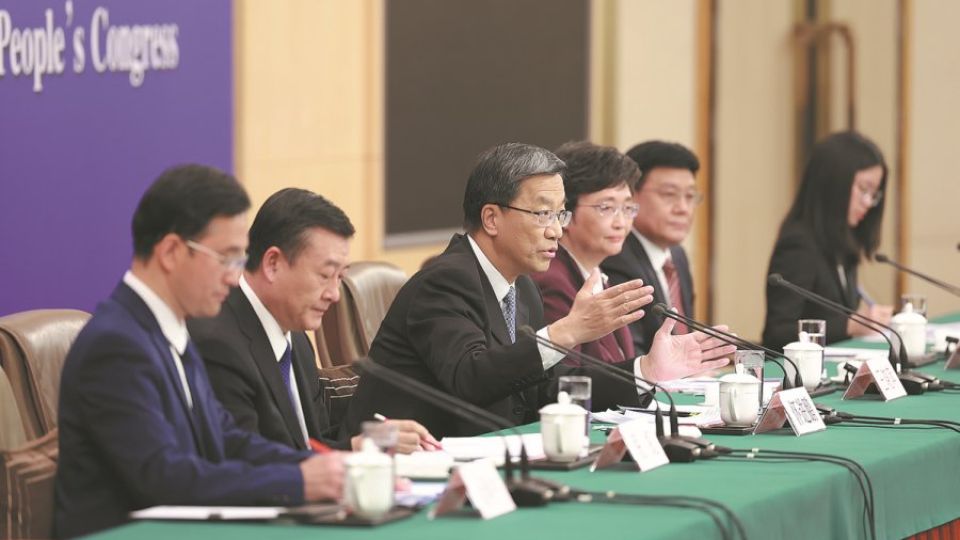March 11, 2024
BEIJING – Government departments and higher education institutes in China have been ramping up efforts to cultivate talent according to the demands of social development and ensure that college graduates have access to multiple employment channels.
Huai Jinpeng, minister of education, said on Saturday that China will strive to cultivate a large number of outstanding, innovative and talented people, as part of its efforts to accelerate the development of new quality productive forces.
To achieve the goal, China will better connect basic education with higher education and encourage universities to fully leverage their distinctive strengths in talent cultivation, Huai said.
He made the remarks at a news conference on the sidelines of the two sessions, the annual gatherings of China’s top legislative and political advisory bodies.
Stating that the number of college graduates will reach 11.79 million this year, Wang Xiaoping, minister of human resources and social security, told reporters at the news conference that efforts will be strengthened to promote the employment of young people.
Wang said that China will continue to prioritize stabilizing and expanding employment. It also will implement more preferential policies, optimize job services and tighten supervision of labor relations.
Li Peng, a deputy to the National People’s Congress and the president of Zhengzhou University in Henan province, said the university has taken employment demands into consideration during the entire process of nurturing high-quality talent, achieving goals of both talent cultivation and in-demand employment.
There are around 73,000 students enrolled in the university, and nearly 20,000 graduate each year. “Each graduate represents a family, and the commitment to ensuring their employment directly contributes to the stability of the smallest social units,” Li said.
The university has implemented a comprehensive mentoring system in which students are deeply involved in research teams, academic projects and industrial practices. This continuously enhances the targeted development of students and builds an integrated system covering the entire process from enrollment to career development, Li said.
The university has set up a corporate information database of 45,803 employers, enabling real-time access to recruitment information and updates tailored to graduates of different majors and counselors.
Li said the university has provided job-seeking and entrepreneurial subsidies for 1,937 graduates, delivering high-quality employment services to key groups such as low-income families and disabled students.
The university has invited enterprises to communicate with students and cooperated with alumni and research institutes to further promote the employment of graduates, she added.
Deng Hui, an NPC deputy and the president of Jiangxi University of Finance and Economics, said the university is facing great challenges and pressure as the number of graduates is expected to exceed a record 10,000 this year.
“We plan to deal with the problem from both supply and demand sides, figuring out students’ career demands while learning about job vacancies from the human resources department,” Deng said.
The university will hold a number of recruitment events to facilitate face-to-face connections between graduates and enterprises. “More job opportunities from enterprises founded by our alumni will be offered,” he said.
Deng said targeted employment information will be provided to specific graduates. “For instance, recruitment notices of the four leading accounting companies are expected to reach accounting major students,” he said.
Regular cooperation with companies such as Huawei Technologies and electric vehicle maker BYD will be promoted, as “these employers proposed requirements for talent as early as in the stage of designing curriculum”, Deng said.
Some companies organized competitions at school or assigned tasks to students before graduation in order to select their future colleagues, he added.


